Some of the links in this post are affiliate links. This means if you click on the link and purchase the item, I may receive an affiliate commission at no extra cost to you.
If you are a beginner scuba diver or thinking of getting qualified, you’re probably wanting some tips to know how you can be a great diver. Luckily, I have been where you are and I have a ton of scuba diving tips and tricks up my sleeve.
Safety is paramount while diving, and that’s why a lot of the tips below relate to that in some way. However there are lots of other tips that can help extend your dive, increase your love of diving, and keep you mindful of external factors.
Read on to find out my best 23 tips for beginner scuba divers.
#1 Get Certified
So duh, I hear you say. This is one of the most obvious scuba diving tips.
What I mean is, if you loved your first fun dive go right ahead and sign up for a certification. Don’t be that person taking fun dives all over, never getting a taste of being properly skilled. Getting certified is your first step to diving confidently at dive sites all over the world. So save a bit extra to get certified on your next holiday or even back home.
#2 Choose the Right Instructor
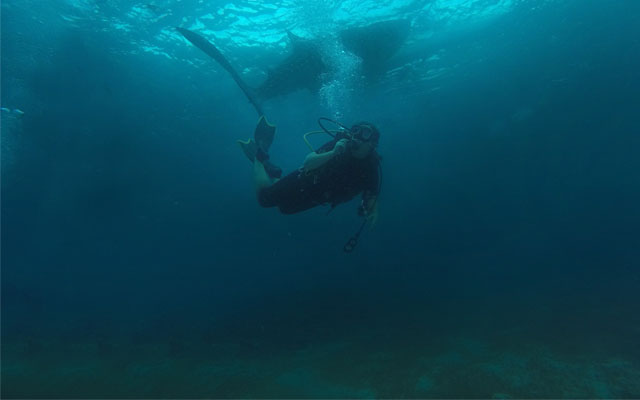
Find an experienced instructor or dive center with good reviews when you do your certification. You’ll learn to be a much better diver when your instructor is experienced, friendly and patient. The best way to find this out beforehand is reading the reviews online. You can often find these through the company’s website, but its much better to seek reviews on places like TripAdvisor or tour aggregators like Viator (if the certification is offered there).
When choosing a dive shop to do your training, you’ll want to pay carefully attention to any mention of something dangerous happening or how other divers were treated by the employee. You wont learn much if the person teaching you is abrasive or careless. On the technical side, look out for mentions of the dive instructor being knowledgeable.
#3 Practice Your Breathing
One of the best scuba diving tips for beginners is to focus on slow, deep breaths to conserve air and stay calm underwater. This is important for your own safety, as freaking out underwater is never a good thing. It can feel a bit unusual breathing underwater at first, so this is something you may learn over time as a beginner.
Another good reason for mastering your breathing while scuba diving is to help you conserve air. Breathing fast will go through your oxygen quickly and lead you to a shorter dive. On the other hand, breathing deeply and slowly will enable you to spend more time underwater.
#4 Master Equalization
When scuba diving, the pressure around you increases the deeper you go underwater. To keep your ears comfortable and prevent ear related injuries, you need to equalize the pressure in your ears. This means adjusting the pressure inside your ears to match the pressure outside. Start equalizing your ears before you feel any pain or discomfort, and continue to do it regularly as you descend into the water.
Common ways to equalize your ears include swallowing, gently blowing with your nose pinched shut. I personally find the nose option easiest when diving because it lets me keep my breathing pattern. If you equalize your ears early and often, you’ll reduce the risk of ear problems which can be painful. It’s important to listen to your body and make sure your ears are adjusting properly throughout your dive.
#5 Check Equipment
Before every scuba dive, it’s important to check your gear to make sure it’s working properly and fits correctly. This includes inspecting your mask, fins, wetsuit, and especially your regulator and tank. Look for any signs of wear or damage, like cracks or leaks, and make sure all straps and buckles are secure.
Properly fitting gear is also crucial for a safe dive. Ensure your mask seals well and your wetsuit fits snugly without being too tight. A well-fitted wetsuit keeps you warm and a properly adjusted mask prevents leaks. I always felt my wetsuit was a little too tight on land, but a perfect fit in the water.
Taking these steps before each dive helps you stay safe and enjoy your time underwater. This is probably one of the best tips for beginner scuba divers.
#6 Plan Your Dive
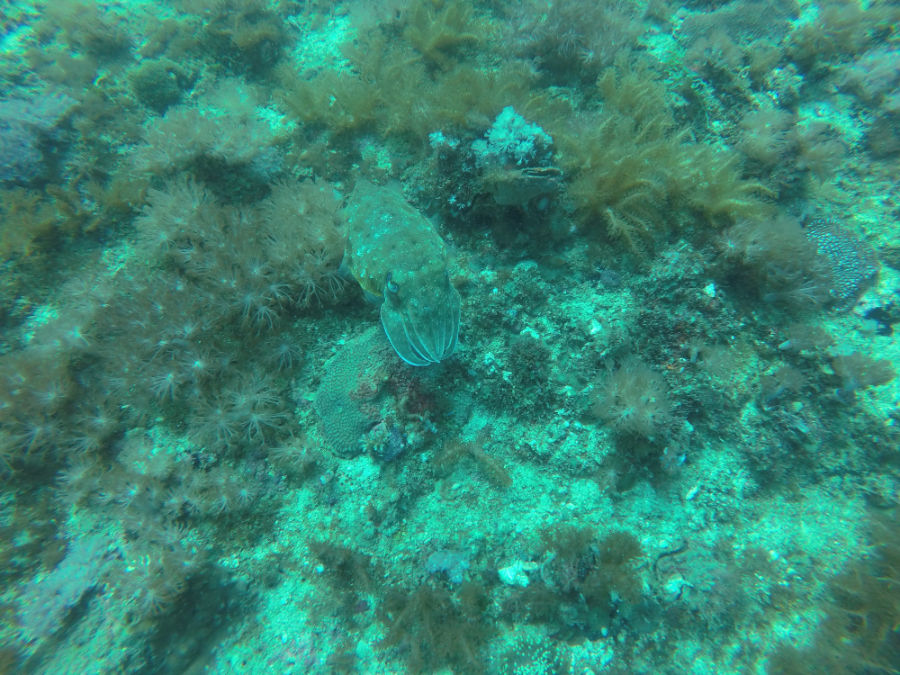
When scuba diving, it’s important to stick to your own skill level and experience. Don’t try to go deeper or stay underwater longer than you’re comfortable with. Following the dive plan you’ve set or the plan given by your dive guide helps keep you safe. This plan usually includes details like the maximum depth, how long you’ll stay at different depths, and how to handle any potential problems.
If you stay within your limits and follow the dive plan, you’re less likely to face issues underwater. It’s also a good idea to communicate with your dive buddy or guide if you’re unsure about anything. This way, you can enjoy your dive while minimizing risks and ensuring a safe experience.
#7 Buddy System
Never dive alone; always have a buddy to watch your back and vice versa. Luckily if you’re a solo-Sally most dive boats will pair you up with another diver. Sometimes your buddy may just be the dive guide.
If you actually happen to know another person who scuba dives, make sure they are someone you trust and find attentive. The worst dive buddy is the one who constantly drifts off on their own, leaving you to chase after them. So pick someone who will keep an eye out for you.
#8 Signal Clearly + Remember
Hand signals are learned during your scuba diving certification and can be really helpful to use while diving. The most important are the ones related to your air but there are others which can ensure you don’t miss out on cool creatures nearby.
Regardless of what you’re signalling, make sure you do it clearly. Don’t fling your hands up, strike a pose and bring them down just as fast. Give the other divers time to see what signal you’re making. This can be especially important if you’re nearly out of air.
Another thing I personally struggle with is remembering the signals as its often a while between dives. I strongly recommend refreshing your knowledge online if you’re starting to forget, or even doing a refresher course if its been a while since you last dived.
#9 Monitor Your Air
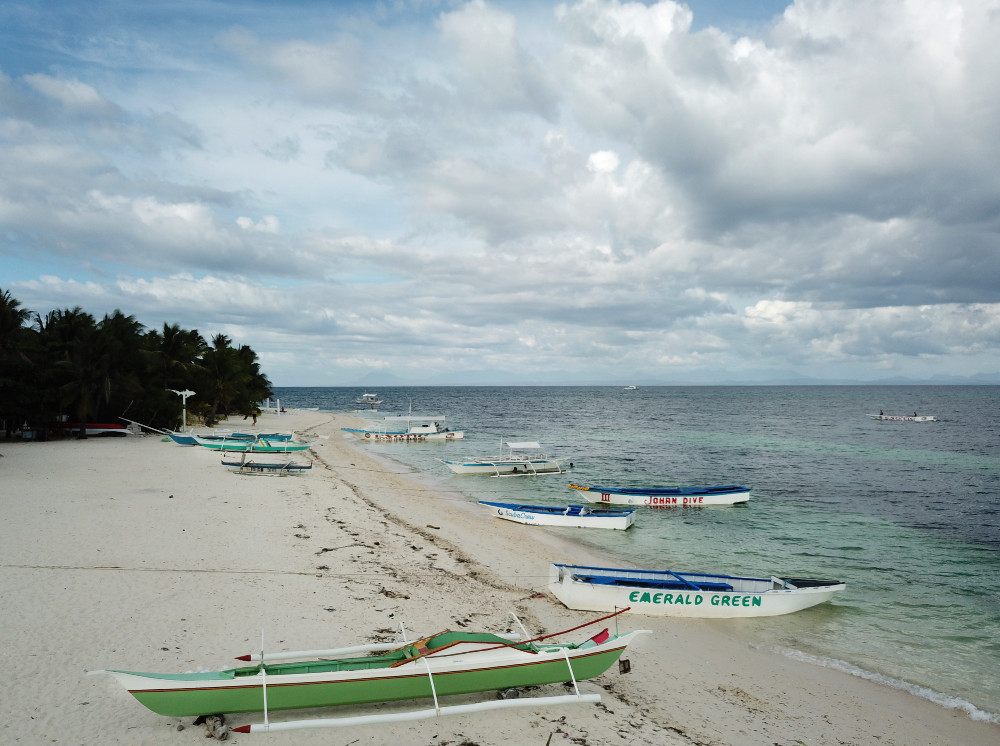
While scuba diving, it’s really important to monitor how much air you have left in your tank. Check your air gauge regularly to avoid unexpectedly running low on air. Plan your ascent so that you still have enough air left, ensuring a safe and controlled exit from the water.
When you start to ascend, do it slowly and make sure you have enough air to complete the ascent safely. Having a good amount of air remaining helps prevent emergencies and allows you to handle any unexpected situations calmly.
Don’t feel bad if you go through air quicker than the other divers. I remember diving in the Philippines as a less experienced diver and needing to go up ahead of the others with my dive guide. I didn’t want to run out of air just to save face, and the other other divers were able to stay down with the other dive guide anyway. Always remember to check your air supply frequently to ensure you have a safe dive.
#10 Stay Hydrated
I know what you’re thinking – you’re in water, why do you have to drink it.
Hear me out.
Drinking water before and after diving can prevent dehydration. Dehydration can lead to a higher chance of decompression sickness, and nobody wants that, right?. Being hydrated can also help regulate your body temperature – helping you to replace what you may be sweating out on a hot day in between dives. And also, being dehydrated can make you feel sick, and no one enjoys throwing up through their regulator.
So make sure you bring a large water bottle on board and take advantage of the (hopefully) free water on the boat.
#11 Know Your Limits
When scuba diving, it’s important not to push yourself beyond your comfort zone. If you’re not comfortable with a certain depth or type of dive, it’s best to avoid it until you gain more experience. Sticking to dives that match your training helps keep you safe and prevents accidents.
If you encounter a situation that feels like you’ve bitten off more than you can manage, don’t hesitate to signal for help, or decide not to enter the water. It’s okay to say no if something doesn’t feel right. Your safety should always come first, and it’s better to dive within your limits.
As you gain more experience and training, you can eventually take on more challenging dives. Until then, focus on mastering the skills you already have and enjoy the dives that you’re comfortable with. This approach helps ensure you have a safe and enjoyable diving experience.
I’ve not yet had a situation where I’ve had to end the dive due to my limits, but came close once while doing a beach dive with a rough entry. I felt like I was in a washing machine for a brief moment near the surface, but managed to make it past the tough part. If I had continued being pushed around as I descended, I would have called the dive.
#12 Respect Marine Life
When scuba diving, it’s important not to touch or disturb marine life. Sea creatures can be harmed in a lot of different ways if we touch them. By observing them from a distance, you help protect their natural behaviours and avoid causing stress or injury.
Additionally, touching or grabbing marine animals can be dangerous for you as well. Some have defences like sharp spines or toxins that could hurt you. To ensure both your safety and the wellbeing of marine life, watch them from a respectful distance without trying to interact with them.
#13 Stay Relaxed
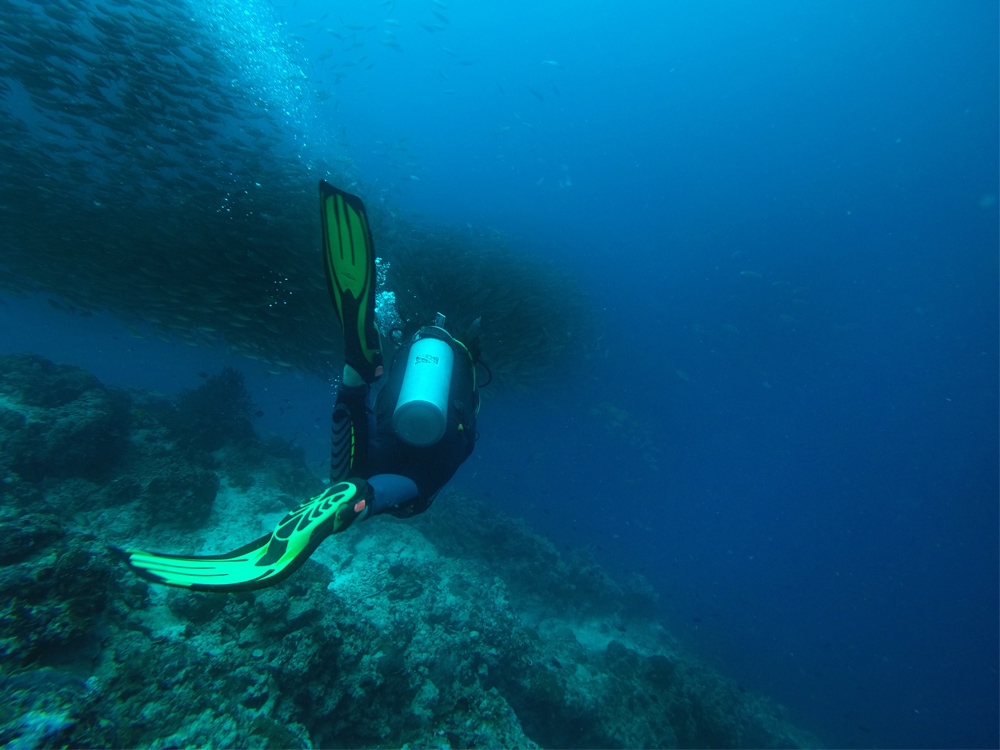
Staying calm and relaxed while scuba diving is essential for a safe and fun dive. If you stay calm, you can think clearly and respond better to any unexpected situations that might come up. Panicking or rushing can make problems worse and make it harder to handle your equipment properly.
To stay relaxed, focus on your breathing and take slow, deep breaths. This helps keep you calm and helps manage your air supply more efficiently. If you feel anxious, remember that it’s okay to stop and take a moment to collect yourself. Being calm will help you enjoy your dive and better handle any issues that arise.
#14 Master Buoyancy
Mastering buoyancy is a key skill for scuba diving, making it one of my top tips for beginner scuba divers. It means being able to float at the right depth without having to constantly adjust your position. When you practice good buoyancy control, you can move smoothly through the water and avoid accidental contact with delicate coral reefs.
I personally struggled with my buoyancy but have gotten so much better with practise. What’s helped me is making sure to only make small adjustments at a time to my bcd, and prioritising controlling my buoyancy through my breathing. Eg: taking a bigger breath in than out when I want to position myself a little lower.
Good buoyancy control also helps you avoid stirring up sediment from the ocean floor, which can reduce visibility and disturb marine life. By practicing this skill, you can protect underwater environments and make your diving experience more enjoyable.
#15 Stay Warm
To stay comfortable while scuba diving, it’s important to wear the right gear. Depending on the water temperature, this might include a wetsuit, drysuit, or even a dive hood and gloves. Proper exposure protection helps keep you warm and prevents hypothermia, which is not something you want to get.
Wearing the right dive gear also helps you stay focused on diving rather than shivering from the cold. Make sure your gear fits well and is suitable for the conditions you’ll be diving in. This way, you can enjoy your dive comfortably while staying warm.
#16 Monitor Depth
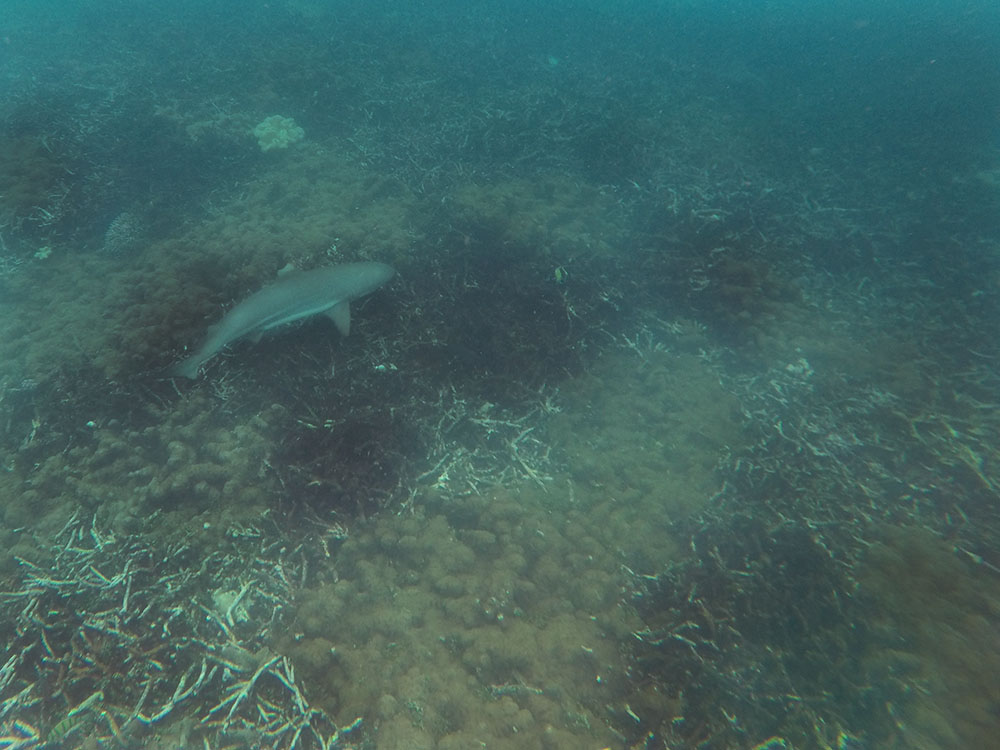
Monitoring your depth while scuba diving is crucial for your safety. Keeping track of how deep you are helps you manage your dive time and avoid going too deep, which can increase the risk of decompression sickness. Your dive computer or depth gauge is a handy tool to help you stay aware of your current depth.
As you prepare to end your dive, it’s important to ascend slowly. Rapid ascents can cause nitrogen bubbles to form in your body, leading to decompression sickness, also known as “the bends.” By ascending gradually, you give your body time to safely release the nitrogen that has been absorbed during your dive.
Always follow the ascent rates and safety stops recommended for your depth and dive plan. This helps ensure that you return to the surface safely and reduces the risk of decompression sickness.
#17 Practice Emergency Procedures
Practicing emergency procedures is something you’ll do in your open water course. Make sure you are confident with, and understand the emergency protocols from your instructor before diving elsewhere. This includes knowing how to handle issues like equipment failure, getting lost, or running low on air.
It’s also a good idea to review these procedures regularly to keep them fresh in your mind. This way, you’ll be prepared to handle emergencies underwater. If you find your knowledge slipping, many dive centres will offer refreshers to keep your skills up to date.
#18 Review Dive Charts
Before you dive, it’s important to review the dive charts for your dive site. Dive charts provide detailed information about the layout of the site, including depths, underwater features, and potential hazards. Knowing this information helps you plan your dive route and avoid dangerous areas.
Familiarizing yourself with the dive site’s layout and hazards can prevent accidents and make sure you don’t miss anything interesting. By understanding the site beforehand, you can navigate more easily and be aware of any obstacles or risks.
Another option is doing a quick internet search to see reviews or tips for the dive site you’ll be visiting. This is most easy with the more popular sites. Sometimes you’ll find some good tips there from divers who have visited the site previously.
#19 Stay Fit
Scuba diving requires a certain level of fitness, however, the fitter you are the better. This can be particularly important in rough conditions, where you need to be a strong swimmer to either get from A to B or dive in stronger currents.
Further to that, being fit can help you go through less air on a dive. I know when I was less fit than I am now, I would go through the air quicker on my dives. On dives where you need to exert more energy, a healthy level of fitness can help you reduce your air consumption due to not panting.
#20 Keep Your Knowledge Updated
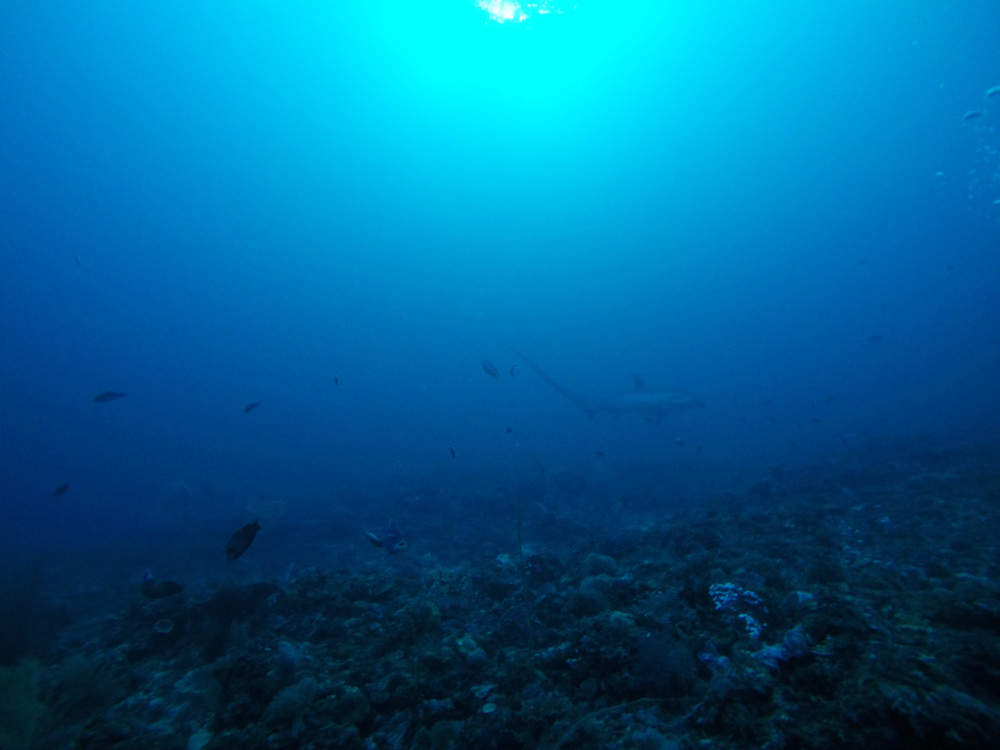
Keeping your scuba diving knowledge updated is important because you can easily forget things and loose skills over time. Scuba diving equipment, techniques, and safety procedures can change over the years as well. By staying informed about the latest practices, and nurturing what you’ve learnt, you ensure that you’re remaining a safe and skilled scuba diver.
You can keep your knowledge current by taking refresher courses, reading diving magazines, or joining diving groups. Regularly reviewing dive tables and safety guidelines also helps. I have done refreshers a few times as it can sometimes be more than a year between dive trips.
#21 Watch the Weather Report
While (hopefully) your dive centre will cancel a dive if the weather is going to make it dangerous, it’s a good idea to keep an eye on the weather yourself. If you are not a strong swimmer, rough weather (leading to bigger waves, stronger current) can make diving dangerous. This is especially true if you have a lower level of fitness.
Being aware of how the weather can affect a dive can help you decide if you should pull out or not. For instance, heavy rain can impact visibility underwater, but light rain is not going to make much of an impact. If boat diving, you’ll want to hope the boat has a covered area to keep you protected between dives though.
A storm on the other hand could influence both surface conditions and underwater conditions. In most cases, its best to avoid diving when a storm is predicted.
#22 Have a Surface Marker
Another good tip is to use a signaling device like a surface marker buoy to alert boats of your position. While its unlikely, it can’t hurt to put a warning up to ensure no other boats get too close.
If diving with a guide your guide will often have one, but you can ask before the dive. Sometimes it is not feasible to use one, but it can never hurt to have one in your scuba toolbox just incase. Experienced dive guides when bring one when needed, and know when they aren’t necessary.
If diving alone its more important to have one. This is because less people know where you are.
#23 Have Fun
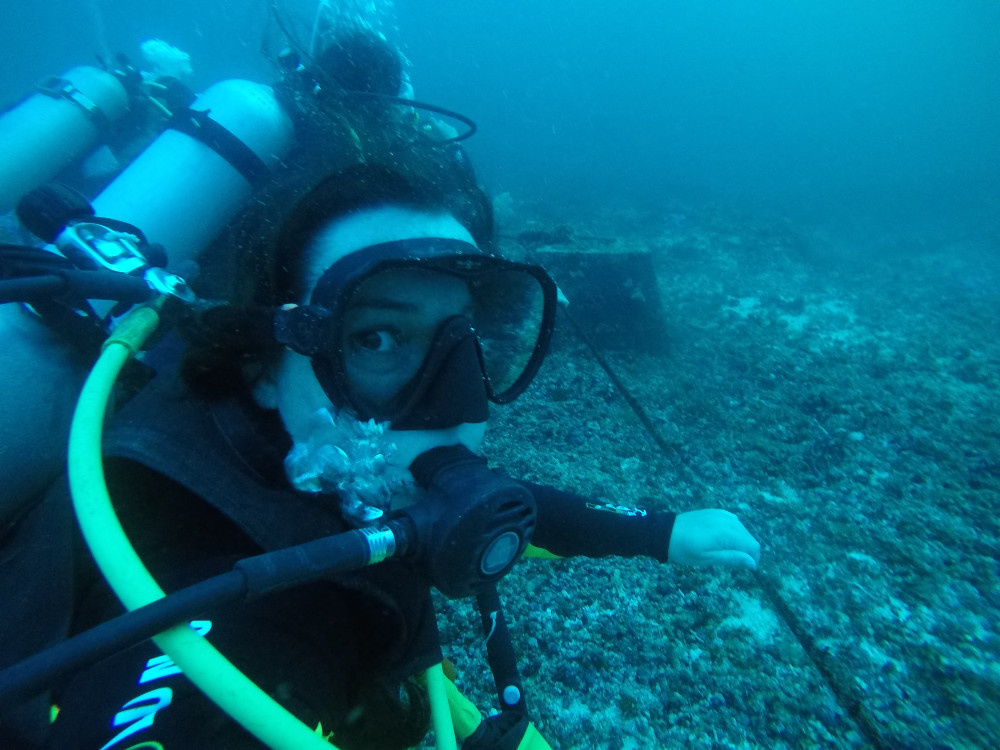
Diving is one of the coolest things you can do as it gives you a glimpse into a whole different world. There is so much to see underwater. Staying calm and remembering to enjoy yourself is one of my top tips for scuba diving for beginners.
Not only can you enjoy watching the underwater wildlife around you, and check out interesting plants and coral, you can also do things such as underwater photography. So you’re not just enjoying the dive but also getting a memory of it for later.
Beyond that, there are tons of unique dive spots to go to and fish to see that will keep you entertained over years of diving. So enjoy each dive and capture some memories.
I hope you got some great tips from the above to help you as a beginner scuba diver. I found its really helpful to read tips like these, but most of all, you’ll learn a ton from diving itself. There’s a reason the saying ‘practice makes perfect’ is so popular. So take these beginner scuba diving tips and get out there as often as you can.
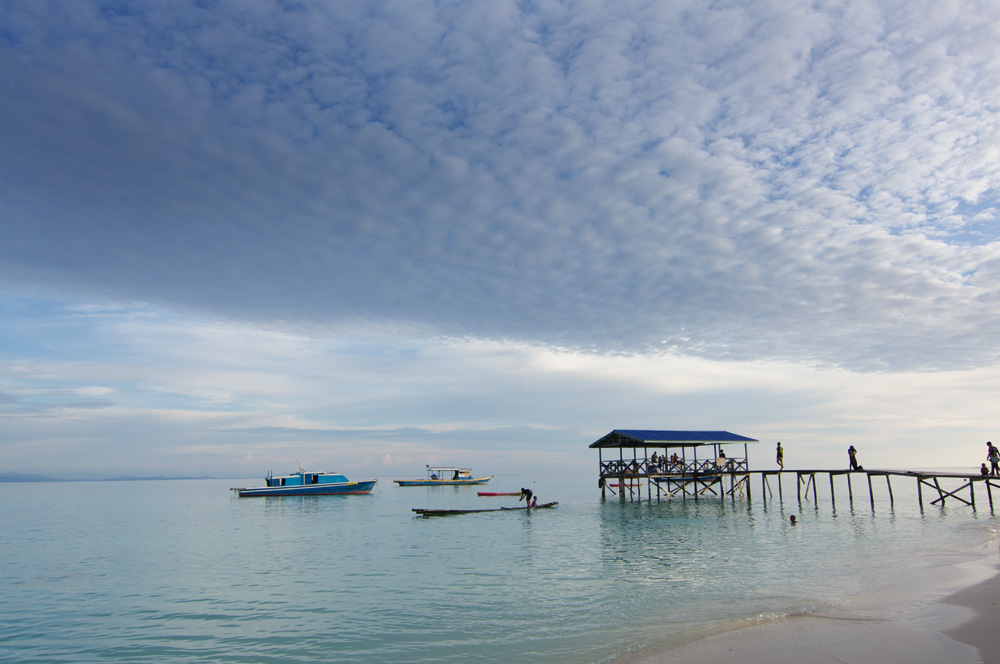
Leave a Reply